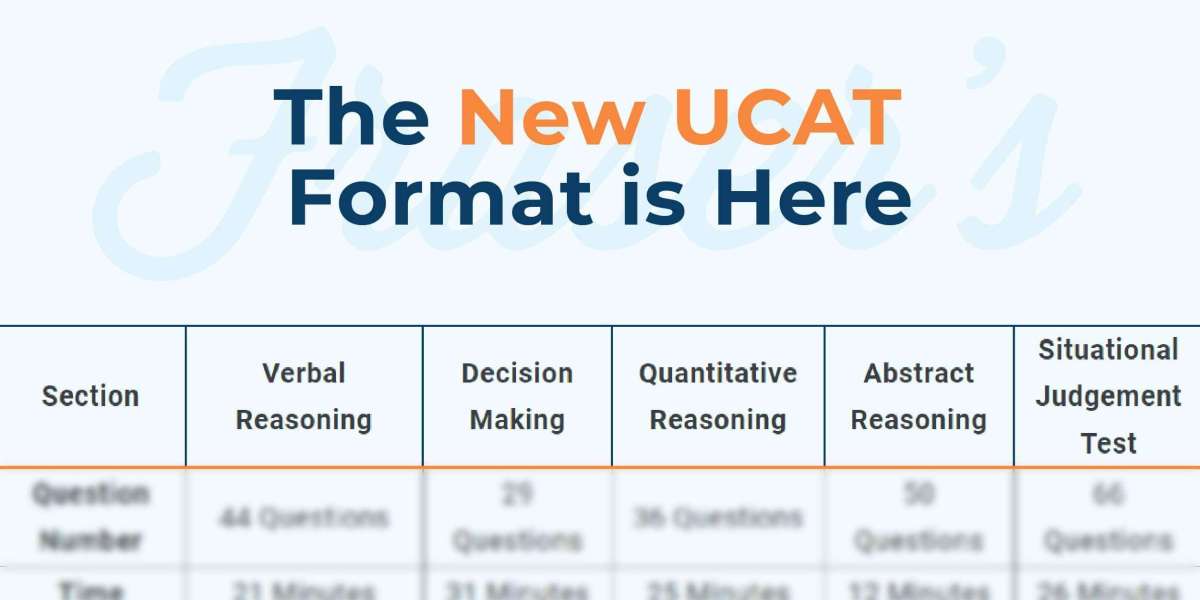The University Clinical Aptitude Test (UCAT) is a pivotal assessment tool used by numerous medical and dental schools to evaluate the cognitive and behavioral competencies of applicants. The exam is a critical part of the selection process for institutions in the UK, Australia, and New Zealand, and it tests essential skills beyond academic knowledge, such as critical thinking, decision-making, ethical judgment, and emotional intelligence. This article presents an in-depth analysis of the UCAT EXAM syllabus breaking down the specific cognitive and interpersonal domains evaluated by the exam.
1. Verbal Reasoning: Analytical Reading, Interpretation, and Deductive Logic
The Verbal Reasoning section assesses a candidate's ability to comprehend and critically engage with written information. It is designed to test several key abilities:
Critical Textual Analysis: Candidates must be able to identify key points, infer meaning, and synthesize information from passages of text. This requires advanced comprehension and reasoning skills.
Logical Deduction: Beyond understanding the words on the page, candidates must deduce meanings that are not explicitly stated, applying both deductive and inductive reasoning to the material.
Argument Evaluation: This aspect of the section focuses on assessing how candidates analyze and critique the structure and validity of arguments within the text, helping them recognize logical fallacies and weak points.
Mastery of this section requires strong reading comprehension and the ability to engage in higher-order cognitive processing to extract deeper meanings from complex texts.
2. Decision Making: Complex Cognitive Analysis and Risk Evaluation
The Decision Making section challenges candidates to process and analyze complex information quickly, using reasoning and data interpretation skills. The skills assessed in this section include:
Data Integration: Candidates must synthesize different types of information (numeric, textual, and visual) to make informed decisions.
Risk Management and Probability: Many questions involve making decisions under conditions of uncertainty, testing the candidate’s ability to assess risk and calculate probabilities.
Situational Analysis: This requires candidates to assess multifaceted scenarios, often with incomplete data, and to make decisions that account for various competing factors, such as time constraints and potential outcomes.
Candidates must be able to make well-reasoned decisions efficiently, demonstrating the ability to handle complexity and ambiguity in problem-solving.
3. Quantitative Reasoning: Mathematical Problem-Solving and Interpretation of Data
The Quantitative Reasoning section evaluates candidates’ mathematical skills, focusing on their ability to interpret and solve problems using quantitative information. The core competencies include:
Mathematical Proficiency: Candidates are required to apply basic mathematical concepts, such as arithmetic, algebra, and geometry, to solve problems within a short time frame.
Data Interpretation: This part of the section tests the ability to interpret numerical data presented in different formats, such as graphs, tables, and charts, and make conclusions based on the data.
Logical and Proportional Reasoning: Candidates must identify relationships between numbers and apply proportional reasoning to solve complex problems, often requiring the use of mathematical models.
Success in this section requires not just mathematical knowledge, but the ability to apply mathematical concepts rapidly and accurately in practical scenarios.
4. Abstract Reasoning: Visual and Conceptual Pattern Recognition
The Abstract Reasoning section focuses on evaluating a candidate's ability to identify patterns and relationships in abstract visual data. The skills tested in this section include:
Pattern Recognition: Candidates are presented with sequences or groups of figures and must discern the underlying relationships between them.
Visual-Spatial Reasoning: This part assesses a candidate's ability to mentally manipulate visual shapes, identifying geometric transformations like rotations, reflections, or alterations in size and structure.
Conceptual Synthesis: Candidates must generate and apply abstract rules that explain the patterns or relationships observed, demonstrating an ability to think conceptually and logically without relying on concrete examples.
This section tests cognitive flexibility and the ability to engage in complex, abstract thinking under time pressure.
5. Situational Judgment: Ethical and Professional Decision-Making
The Situational Judgment section assesses a candidate’s ability to handle complex, real-life situations that require ethical decision-making and interpersonal skills. This section tests the following competencies:
Ethical Judgment: Candidates are presented with scenarios where they must make decisions based on ethical principles, considering the well-being of patients, colleagues, and others involved in the situation.
Emotional Intelligence: The ability to respond to emotional cues and demonstrate empathy and understanding in situations involving patients and colleagues is crucial in this section.
Professionalism and Ethical Conduct: Situations often involve dilemmas related to professionalism, and candidates must choose responses that reflect the highest ethical and professional standards.
In this section, candidates are evaluated on their ability to balance multiple priorities, think critically about ethical considerations, and demonstrate professionalism and empathy in difficult situations.
Conclusion: Comprehensive Understanding of the UCAT Syllabus
The UCAT syllabus is an extensive evaluation designed to assess a wide range of skills that are crucial for success in the medical and dental fields. By testing Verbal Reasoning, Decision Making, Quantitative Reasoning, Abstract Reasoning, and Situational Judgment, the UCAT provides universities with a comprehensive profile of each candidate’s cognitive and behavioral abilities.
A candidate’s performance on the UCAT is not simply a reflection of their academic knowledge, but a demonstration of their capacity for complex reasoning, ethical decision-making, and interpersonal sensitivity—key attributes required for a career in healthcare. As such, preparation for the UCAT exam syllabus must focus on honing cognitive, analytical, and emotional skills in all areas, ensuring candidates are equipped to meet the challenges of both the exam and the healthcare profession.








